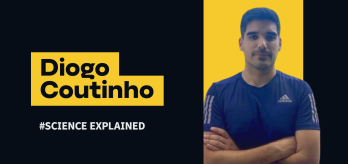The aim of coaching is ultimately to help players learn and improve. With this in mind, should coaches be looking to apply the latest research on the science of learning to guide their training sessions? In this presentation, Professor Mark Williams identifies five challenges coaches face when trying to create the conditions for effective learning on the training pitch, and considers how they might use the science of learning to address them. The presentation is followed by a Q&A session, hosted by FIFA's Dr Paul Bradley.
Identify five major challenges coaches face as they look to deliver effective training sessions. Consider how the science of learning might help us to address each challenge to help players learn and develop.
Developing effective training plans means finding a balance between a variety of different elements. It is very difficult to draw firm conclusions as to where this balance lies, but we can identify some of the factors coaches could consider when looking for it.
Professor Williams does not make any recommendations as such, but he concludes his talk by highlighting some important questions that coaches and practitioners should try to answer when developing training sessions.
Watch presentation
Read summary
Part 1: Accumulating the right kind of practice
The nature of the practice youth players accumulate as they develop is a key factor in their development. In this part of the presentation, Professor Williams explores the scientific evidence in an attempt to answer two fundamental questions. Firstly, how much practice do young footballers really need to become professionals? Secondly, what is the most effective way to accumulate that practice? Specifically, how much of a young player's training should be coach-led? Is there a link between the ratio of coach-led to non-coach-led practice and whether youth players are offered professional contracts? If so, what is it?
Part 2: Catering for individual differences
Football coaches train groups of players, which means they have to adapt to individual players' different learning styles and abilities. In the second part of the session, Professor Williams examines the difficult balance coaches have to strike in order to create drills that are challenging enough to develop players without being too difficult to be useful – a challenge that is especially hard to master when working with mixed-ability groups. He also discusses the approach established professionals tend to apply to training, and how it helps them to improve on their individual weaknesses.
Part 3: The difference between performance and learning
In this section, Williams considers the challenge of yet another balance, this time between short-term performance and long-term learning. While performance can be observed in the moment, learning can only be measured over a longer period of time. Moreover, evidence from existing studies suggests that performance and learning could be affected very differently by various forms of instruction; while hands-on instruction tends to produce better short-term performance, a less prescriptive style seems to encourage long-term learning. Is there a happy medium between these two approaches?
Part 4: Repetition v. specificity
The next question for coaches to consider is how specific their training should be. The aim is to develop drills that are repetitive enough to provide useful practice, yet specific enough to reflect situations players will encounter in matches. As the professor states, the fact "specificity" is a very difficult concept to define makes the whole issue even more complicated. The first step to solving this conundrum is defining what you want to teach your players, which is itself easier said than done.
Part 5: Hands-off or hands-on?
The last of the five challenges Williams identifies is the need to find a balance between prescriptive, "hands-on" coaching and a "hands-off" approach that helps players learn for themselves. A prescriptive coaching style may produce improved performances, but it can also leave players unable to adapt to unfamiliar situations in games. On the other hand, guided discovery tends to foster more adaptable players, but it takes longer for those players to become experts. Williams then moves on to discuss how coaches can combine these two philosophies by imposing various constraints in training sessions to influence players' behaviour without issuing instructions as such.
Part 6: Conclusion
To conclude his presentation, Professor Williams poses a series of questions for coaches and researchers to think about. How can they ensure that practice is a realistic reflection of competition? How can we make practice as effective as possible? How can we incorporate professional expertise into training sessions and tailor them for specific age groups? Finally, how can we change the way non-coaches perceive the coach's role, for instance by shifting the focus away from results and towards effective player development?
Q&A
01:01
Are 10,000 hours of practice needed to be an elite player? How important are the composition and quality of those hours?
02:21
Should players specialise in football early or diversify across multiple sports to get a more rounded profile?
06:49
Do players respond differently to different types of practice and instruction?
08:32
We tend to see a lot of different definitions of "deliberate practice:" how does it differ from other forms of practice?
11:21
We talk a lot about performance in football, and not so much about learning. When should a coach focus more on performance, and when should they focus more on learning?
14:59
To what extent is expertise task-specific? Where do transferrable skills come into the equation?
19:36
What's the difference between constraint-based practice and "just letting the kids play?"
21:21
Is there any research indicating that specific constraints challenge perceptual qualities more effectively than others, or do you need a combination of constraints to work on them?
23:12
How should coaches structure their work with different age groups?
29:09
If you were to give someone watching advice on developing their players, what would that advice be?





















